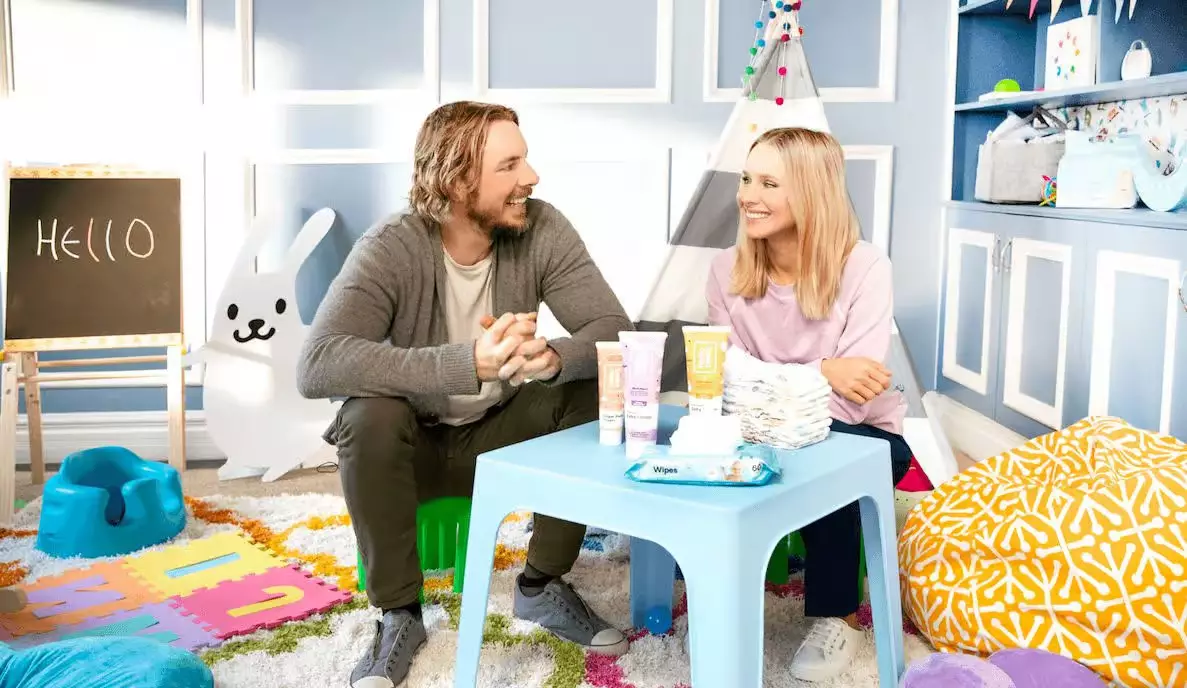Parenthood is often characterized by a series of milestones—first steps, first words, and, of course, potty training. Yet, the reality of parenting can be a labyrinthine journey where every child’s experience can vary immensely, challenging the notion of a uniform approach to child-rearing. Kristen Bell recently addressed this subject on her show, *Momsplaining*, emphasizing that parenting is not a one-size-fits-all endeavor. Her candid revelations about her two daughters, Delta and Lincoln, underscore the importance of recognizing that each child may require distinct methods of guidance as they navigate important developmental stages.
The contrast in Bell’s experiences with her two daughters provides a compelling case study in the realm of child development. Lincoln was effectively potty trained at an impressively young age of 21 months. This seemingly effortless transition set a precedent for Bell and her husband, Dax Shepard, who found humor in the ease of the process, joking about its simplicity. However, the arrival of their second child revealed a sobering truth: what works for one child may not apply to another. Delta, at five and a half years old, is still in diapers, reminding her parents—and all of us—that children progress at their own pace. This contrast draws attention to the diversity inherent in childhood development, which is not merely a matter of biological growth but also of psychological readiness and personal temperament.
The Influence of Environment and Culture
From an academic perspective, the notion of variability in developmental timelines is backed by research. Alma Gottlieb, an anthropology expert, highlights that each culture has its own standards pertaining to milestones, particularly toilet training. In regions where disposable diapers are a luxury, children often experience earlier potty training, an adjustment shaped by cultural norms and availability of resources. The conversation about individualized parenting becomes all the more relevant when considering how various environmental factors impact a child’s development.
It is vital that parents remain adaptable and embrace flexibility, resisting the urge to adhere to rigid schedules. Bell’s realization that Delta’s path differed from Lincoln’s is echoed in Gottlieb’s suggestions for parents everywhere. Embracing individual growth trajectories rather than adhering to fixed timelines fosters a nurturing environment where children can feel secure and unpressured.
The Psychology Behind Potty Training
Child development experts, including clinical psychologist Dr. Laura Markham, contribute to the discussion by shedding light on the cognitive processes involved in potty training. Young children, particularly those around Delta’s age, often become engrossed in their activities, creating an environment where they may not recognize their need to use the bathroom. Dr. Markham’s recommendations highlight the importance of gentle reminders and establishing routines, like regular potty breaks around mealtime or incorporating reminders for bodily awareness. These strategies suggest a supportive approach that prioritizes encouragement over pressure, allowing children to find their own rhythm in mastering new skills.
What is striking, however, is not merely the advice but the open dialogue about the parenting experience as a whole. Bell’s candidness may serve to reassure other parents grappling with similar issues, advocating for an empathetic understanding of the nuanced challenges they face. Children grow at their own pace, and the notion of comparing siblings can inadvertently sow seeds of anxiety and competition.
The Need for a Supportive Community
In exploring this subject, it’s essential to address the broader community dynamics at play. The interactions between parents can create a culture of comparison, often leading to unrealistic expectations. As Gottlieb suggested, adopting a more open-minded stance in parenting could usher in a community ethos that celebrates diversity in child-rearing practices. The influx of social media can exacerbate this phenomenon, propelling parents into the limelight of public scrutiny over their parenting choices and corresponding timelines. The sharing of personal parenting journeys could promote a sense of solidarity, offering a refuge for those experiencing similar challenges.
So, as parents navigate the vast landscape of child development, it is imperative to build a supportive network. By understanding that each child has their own unique journey, we can foster an atmosphere where parenting is less about conformity and more about compassion, patience, and love. Encouraging spaces for dialogue and mutual support is essential, as every milestone achieved, when met with joy and understanding, will undoubtedly create a stronger bond between parents and their children.

